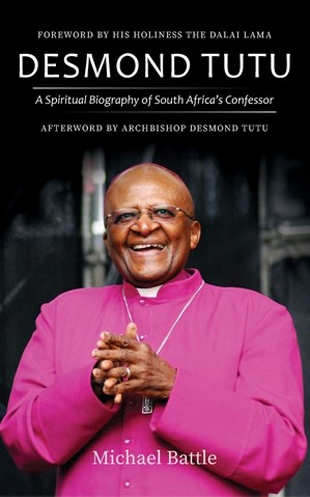“In union with God, Jesus teaches the world that the other, especially the poor and oppressed other, is to be embraced and healed. The challenges to this perceived spirituality of unity are currently articulated most by liberation and contextual theology. Tutu’s spirituality is representative also of this theme of a renewal of spirituality to embrace the poor and otherness. In light of the miraculous spiritual practices of reconciliation in South Africa, it seems natural to view Tutu’s theology and work as a way forward beyond both the individualism of Western spirituality and the liberation hermeneutic of violence and identity politics….
“Tutu becomes a contemporary exemplar through his work of explaining the complexity of human identity, in which particular persons may view liberation differently but always need to aim toward the goal of relational spirituality. This goal, however, has not always existed, even among prominent theologians. For example, one of the architects of black theology, James Cone, struggled against the dehumanizing forces of theologies derived from European rationalism, and refused to accept white identity. As I finished writing this book, Cone passed away on April 28, 2018, the anniversary of South Africa’s first democratic election. Cone, a central figure in the development of black liberation theology in the 1960s and 1970s, argued for racial justice and an interpretation of the Christian gospel that elevated the voices of the oppressed. Cone described black liberation theology as “an interpretation of the Christian Gospel from the experience and perspectives … of people who are at the bottom in society.” Cone concluded that the 'Christian Gospel is … a religion that says God created all people to be free. But ... for black people to be free, they must first love their blackness.'
“Cone spoke forcefully about racial inequalities, which persisted in the form of economic injustice, mass incarceration, and police shootings. Tutu understood Cone’s articulate voice, but always maintained the goal of reunion with God. Tutu states, 'I myself believe I am an exponent of Black Theology, coming as I do from South Africa. I also believe I am an exponent of African theology, coming as I do from Africa. I content that Black Theology is like the inner and smaller circle in a series of concentric circles.' While Tutu recognized himself in Cone’s account of white dehumanizing forces, Tutu’s emphasis on Christian spirituality made him emphasize more of a third way than Cone’s black/white dialectic…. Tutu’s Ubuntu theology favored a more complementary solution of human identities. ...
“Therefore, through a Christian spirituality of liberation enacted in the South African context, Tutu seeks the correct relational complement of black and white liberation, because no one is a person in South Africa until blacks attain the freedom to open their God-given personhood and humanity.”
